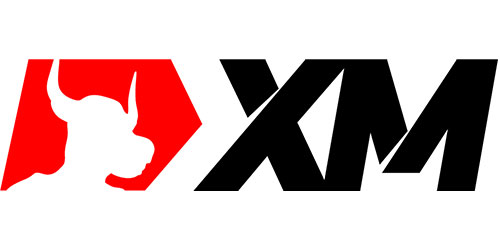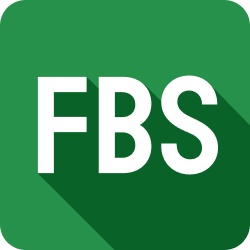
Currency trading, more commonly referred to as forex trading, refers to the exchange of foreign currencies across borders in the largest, most liquid online financial market in the world, the forex market.
The forex market is a fast-paced and lucrative market that is unpredictable and volatile at times, and to become a profitable trader, traders need to ensure that they have the necessary skills.
These specific trading skills relate to some of the following:
- Strong Analytical and Quantitative Skills
- Mental Toughness and Self-Discipline
- Understanding the Basics of Forex
- Meticulousness
- Planning Forex Trading
- Anticipating Forex Trading Trends
- Ability to Focus
- Research Skills for Forex Trading Agenda
- Managing the Risks
- Staying Up-to-Date
Top 10 Forex Brokers Broker Rating Regulators Min Deposit Leverage Website Top 10 Forex Brokers Broker Rating Min Deposit Leverage
1. Strong Analytical and Quantitative Skills
Successful traders have honed, refined their analytical skills, and mastered the process of carrying out professional analysis. The forex market contains a massive amount of data generated every second that the markets are open.
Forex traders need basic math skills to calculate the number of pips they must target, the profits they can expect, etc. Forex trading also involves the application of technical indicators including, but not limited to.
- Relative Strength Index (RSI)
- Money Flow Index
- Stochastics
- Moving Averages
- Bollinger Bands
- Fibonacci and several others
Using these indicators, traders plan their entry and exit strategies, and this requires a significant amount of planning and analytical skills. Traders must have the skill to interpret data and statistics from their fundamental analysis.
The data generated from a fundamental analysis will represent economic growth statistics such as employment records, earnings reports, and several others.
Traders can manage these skills and refine them by using the trading tools and research materials that forex brokers offer. The type of educational resources that traders must use can be found on forex broker's sites, YouTube channels, and tutorials.
2. Mental Toughness and Self-Discipline
Forex psychology is a topic that all forex traders must learn to develop mental strength and self-discipline. Effective trading means that the forex trader must adapt their personality.
Novice traders are extremely susceptible to losing streaks when they start their trading journey because they are still learning. For traders who do not have the dedication, discipline, or mental strength, this can mean the end because they give up.
However, even successful traders have experienced losing streaks in their trading journey. Losses can dampen the trader's interest in forex trading, but traders must keep going and consider the bigger picture.
A loss should never be seen as a single point of failure but as part of the overall learning process. Successful traders learn to remain focused on their trading goals and objectives by keeping to their trading plan and trading strategies.
Trading psychology is a topic that forex brokers often cover under their educational materials. This skill can also be managed by reading related books written by professionals on how to build mental toughness and self-discipline.
3. Understanding the Basics of Forex
Before traders take to the live forex market, they must build a fundamental understanding of the basics first. Beginner traders must learn what the foreign exchange market is, how it works, what drives the prices on currencies, which metrics can influence their trading, etc.
To become a successful forex trader, traders must learn how the forex market works, how to use technical data and fundamental data, carry out in-depth research, and devote time to formal and informal learning sessions.
Once traders understand the basics of forex trading, they can start trading using demo accounts, allowing them to earn practical hours without risking real money.
However, learning is not a once-off thing and traders must invest quality time in continuing to learn by studying new and emerging information and materials.
Traders can manage these skills by using demo accounts and cent accounts that are low-risk allow traders access to live market conditions without risking too much of their capital.
4. Meticulousness in Recordkeeping
One of the best signs that a forex trader has become a seasoned trader is that they can learn from their mistakes. Losing traders never learn from their mistakes and they tend to blame everything else instead of taking responsibility.
One of the most important skills that traders can learn is meticulous recordkeeping. Traders can keep a trading journal that has a record of every trade as it occurs, from planning to post-trade analysis.
The trader must note their entry points, the reason for buying or selling, where stop-loss and take-profit levels are placed, the flow of the market after the position was opened, and how the trader reacted to the market direction.
Traders must also note the profit or loss that they made during their trade. When traders keep a trading journal, they have a printed record that they can use to analyze their trading. This information can be used to improve trading strategies and to keep a check on mental processes.
Traders can improve this skill by starting a trading journal. While it may be intimidating or confusing at the start, traders will start gaining confidence in noting everything about their trade, providing them with a way to learn from a mistake, repeat winning strategies, and improve their overall trading.
5. Planning Forex Trading
A trading plan is a decision-making tool that traders must use during their trading activities. The trading plan will help traders make informed, accurate trading decisions on what to trade when to trade, and what their trading size must be.
A trading plan is a personal plan and while traders can use the trading plan of others, they must adapt it to their unique characteristics and trading objectives.
When planning for forex trading, traders must consider the following.
- Their reason for trading forex
- The time that they can commit towards trading
- The trading goals
- The trader's risk attitude, risk tolerance, risk appetite
- Personal risk management rules
- The range of markets that the trader wants to trade
- The unique trading strategies and trading style the trader plans to use
- The steps that the trader will take to ensure meticulous recordkeeping
A trading plan and a trading strategy are two different things because a strategy indicates the technical parts of trading activities. Traders must have a trading plan so that it can help them make logical trading decisions.
A trading plan also defines the parameters of an ideal trade, and it prevents traders from resorting to their emotions when the market turns against them.
When forex traders create a trading plan for every trade, they must include the following components.
- Trading motivation
- Time committed to trading
- Goals of trading
- The risk-reward ratio for the trade
- Amount of capital to be used
- Market knowledge for the trade and any needs
6. Anticipating Forex Trading Trends
Successful traders learn the different market phases that can occur, namely.
- Trends refer to the direction of the market between bullish trends and bearish trends
- Range-Bound which means that the market is going up or down within a specific range
- Consolidation refers to the market moving into a narrowing range like a triangle
One of the key factors to consider in forex trading trends relates to timeframes. An important tool to use when determining and anticipating forex trading trends is technical analysis, allowing the trader to anticipate market activity before it occurs.
The information is derived from previous chart patterns, probabilities, and certain trading strategies. When traders develop a skill to anticipate trends, it can help prevent them from overanalyzing market direction.
All traders will have unique trading strategies that indicate when, where, and how they must enter and exit the market. Experienced traders also develop the skill to anticipate the outcome of a trade as it happens.
Active traders practice and hone their skills in anticipating trades by monitoring open positions so that they can adjust their trading as they go.
By anticipating trade trends, traders can learn how to place their trading orders in such a way that they maximize profits without risking too much.
The only way that traders can hone this trading skill is to practice by using the trading tools of their broker along with a demo account.
7. Ability to Focus
Focus is an important skill that will increase the more forex traders practice it. There is a massive amount of financial information available, and traders can become lost in it all.
Traders must learn and practice the skill to identify important, actionable data that will affect their trades. When traders start trading, they must have a specific target and trading objective in mind and stick to it.
Traders must remain focused by employing technical and fundamental analysis, using tools that will help them draw the financial data that they need from a chaotic market.
8. Research Skills for Forex Trading Agenda
Traders must ensure that they have the drive and ability to find the relevant data that could impact the financial market or financial instrument that they trade.
Traders must use an economic calendar that displays different announcements, economic releases, and events that could have a significant impact on the financial markets.
Traders can use a wide range of tools that are provided by their forex broker and forex platform to carry out thorough research, this will help traders refine and master their trading strategies to help them develop a competitive edge in their forex trading.
Research is an important component to make sure that traders have a deep-routed and proven trading strategy that will help them become professional traders.
9. Managing the Risks
A very large portion of successful trading depends on how forex traders manage their risks. One of the essential components is setting a risk-reward ratio as part of a solid trading plan and sticking to it.
Before trading, traders must determine their risk tolerance and willingness to be exposed to risk, considering the amount of profit that they can realistically earn.
The risk-reward ratio should ideally be 1:3 or 1:2, where traders risk 1% of their balance and where they can earn 3x or 2x profit proportional to the risk that they take.
10. Staying Up-to-Date
News is extremely influential in the financial markets, especially the foreign exchange market. Traders must ensure that they learn to read daily broadcasts, news reports, and other sources to remain updated on what is happening.
Traders must use this information alongside an in-depth technical analysis while they also pair it with fundamental analysis on news, ensuring that traders focus on the news and information that affects their trades, filtering out anything that does not apply to their trading.
Traders can manage this skill by using the resources that their broker and platform offer, using alerts and notifications to manage news that relates to the trader's trading activities specifically.
The skill to only use specific news and data that pertain to the specific trade takes patience and practice to master.
How can traders Improve their Forex Trading Skills?
The ability to improve trading skills is unique to each trader. Traders can improve their trading skills by practicing them and using educational resources, materials, and tutorials to become better traders.
In addition, to improve forex trading skills, traders can challenge themselves by doing the following.
- Trading different timeframes and currency pairs
- Trading different financial instruments
- Trying new trading strategies
- Developing and thoroughly testing the trading plan
- Keeping detailed notes and reviewing them often
- Consulting professional traders to get tips
What Education is Needed to Improve Forex Trading Skills?
Forex traders can attend and use different forex trading courses to improve their forex trading skills.
In addition to this, forex traders can use the following forex education platforms.
- YouTube videos
- eBooks
- Trading forums
- Online classes
- Webinars and seminars
- Practical exercises
Traders can easily sign up for these platforms through their forex broker or a reputable educational provider. Without these educational skills, traders will not be able to improve and become successful traders.
The importance of education is that traders keep improving and learning because forex education is not a once-off thing but a continuous process.
How to Market your Forex Trading Skills
Successful forex traders market their trading skills by providing education, advice, and trading courses to other novice traders. Successful traders can either partner with trading platforms and providers to offer classes, or they can start proprietary platforms where they provide educational material and resources.
Successful traders can also become trading signal providers and join forex brokers to deliver webinars, seminars, and online classes. Successful traders can also opt to become portfolio managers for companies and forex brokers that offer managed accounts.
What are the Habits of People who have Forex Trading Skills?
Successful traders tend to have extremely rigid schedules and time management skills. While some forex traders retire from trading after they have made significant profits, others continue at an easier pace, or they start teaching other traders.
Forex trading should be considered a business and most successful traders treat it just like that, a business that must be maintained and grown over the years.
Some of the habits of professional traders are.
- Remaining passionate but humble
- Being an optimist with realistic expectations
- Being patient, persistent, and learning from mistakes
- Observe strict rules and discipline
- Always manage risk while protecting capital
- Remaining in control of emotions
- Never take shortcuts
- Have a balanced professional and personal life
Some of the best trading strategies that professional traders use include:
- News trading
- End-of-day trading
- Swing trading
- Day trading
- Trend trading
- Scalping
- Position trading
What should you do to Become a Successful Forex Trader?
Some of the tips that traders can follow to become a professional trader include.
- Developing the right skills such as diligence, research skills, discipline, analytical skills, and so on.
- Consistent education and training
- Starting small
- Always research the market condition before every trade and learn to anticipate market trends
- Starting with a demo account and always using a demo account to practice trading
- Find a trading expert to help provide expert advice
- Trade with a strategy and develop a solid trading plan, then stick to it
- Do not be afraid of losses because they are an opportunity to learn and improve
- Always keep emotions in check
- Maintain a low risk per trade and use money management tools
- Always use stop-losses and other risk management tools
Table of Contents













